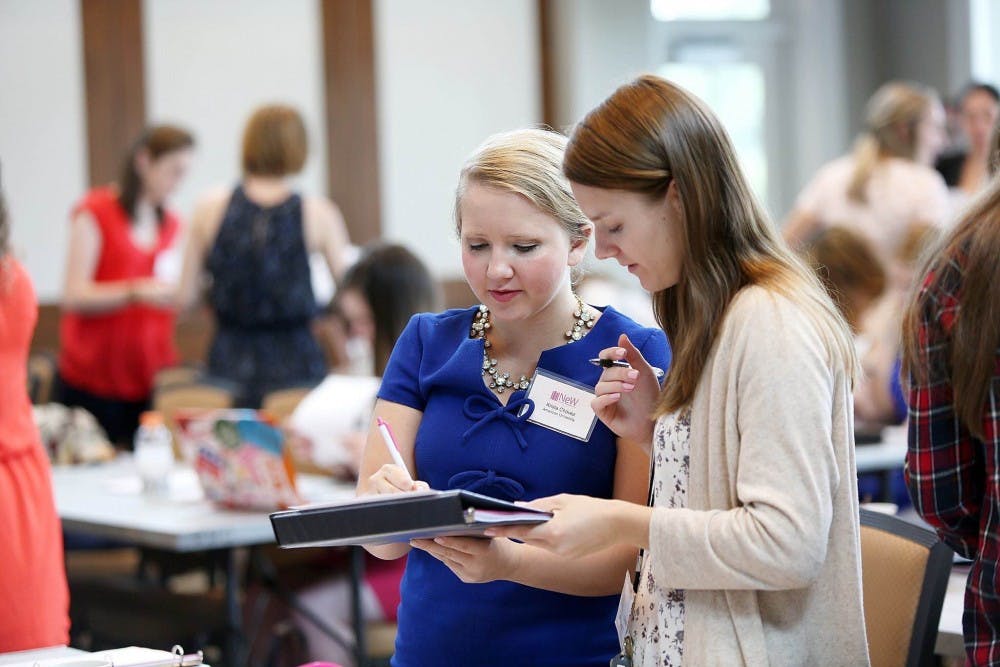In 2016, voters are using their relationships to swing the vote toward their own party.
According to a new study by the Pew Research Center, few Clinton or Trump supporters look for friendships in the opposite party. Among registered-to-vote Trump supporters, only 4% have “a lot” of close friends supporting Clinton. This number is more dramatic in relation to registered-to-vote Clinton supporters, with only 2% saying they have “a lot” of close friends supporting Trump. Further, Trump supporters have a lot (44%) of friends supporting Trump, and some friends (38%) supporting him. 16% of Trump voters have “just a few” or “none” of their friends swinging for Clinton. The same goes for Clinton’s voters, with 31% saying they have no close friends who support the opposition.
The data tells us that people are less willing to build friendships with those who support different viewpoints. This explains the widespread polarization in media, pop culture, communities, and the United States as a whole. The age bracket of 18-29 -- Millennials, including college students -- reflects this isolated trend. With 58% of Clinton supporters saying none of their close friends support the other candidate, only 34% of Trump supporters say the same.
As I have different viewpoints than the majority of my peers on AU’s campus, these figures do not surprise me. Another study by Pew supports my feelings by reporting that 40% of Millennials ages 18-34 support the government censoring “offensive” speech. The data highlights the decline in acceptance of other views in America, and how alternative opinions are viewed on modern college campuses.
Examining this idea more in depth, OKCupid released a new study detailing how partisanship actually influences a person’s dating profile. Their research concluded that “the amount of OkCupid users who couldn’t date someone with opposing political views is at 50% — a number that’s been rising since 2008.”
Apparently, voting even counts when seeking a proper life partner. Personally, this is not surprising. Most people seek a partner who holds their same values that can grow and thrive in a family. Therefore it is only logical that one chooses another to spread these values within the home.
The OKCupid study found that in dating profiles, liberals are likely to feature interests like “The Daily Show, Broad City, NPR, podcasts, and weed,” and conservatives are likely to use words like “Jesus, Faith, Country, and Guns.” Bipartisan overlaps for words include “INTP (a Meyers-Briggs personality type), Outlander, Indiana, iPhone, Adventure, Honesty, and Considerate.”
Examining these polls, both parties express different values that are not only attractive when voting, but also when choosing friends and partners. While this is not necessarily a bad thing, it is upsetting when a large portion of the U.S. youth population is wary to hear different viewpoints, unregulated speech, and expression.
As a founding principle of the United States, free speech was intended to support minorities from the dictatorship of the majority. It appears that many millennials do not feel that way, especially when choosing friends and spouses.
At the end of the day, it is a good thing we can all agree: honesty and consideration are good characteristics for partners. But maybe appreciating our partners and friend groups’ differences can be just as valuable.
Krista found inspiration for this article while listening to The Pollsters podcast. The Pollsters is a bipartisan weekly podcast by Republican Pollster Kristen Soltis Anderson of Echelon Insights and Democratic Pollster Margie Omero of Purple Strategies. Listen here.
Krista Chavez is a junior in the School of Public Affairs. She is a Criminal Justice Reform, Defense, and Immigration Policy Associate with Americans for Tax Reform in Washington, D.C.





